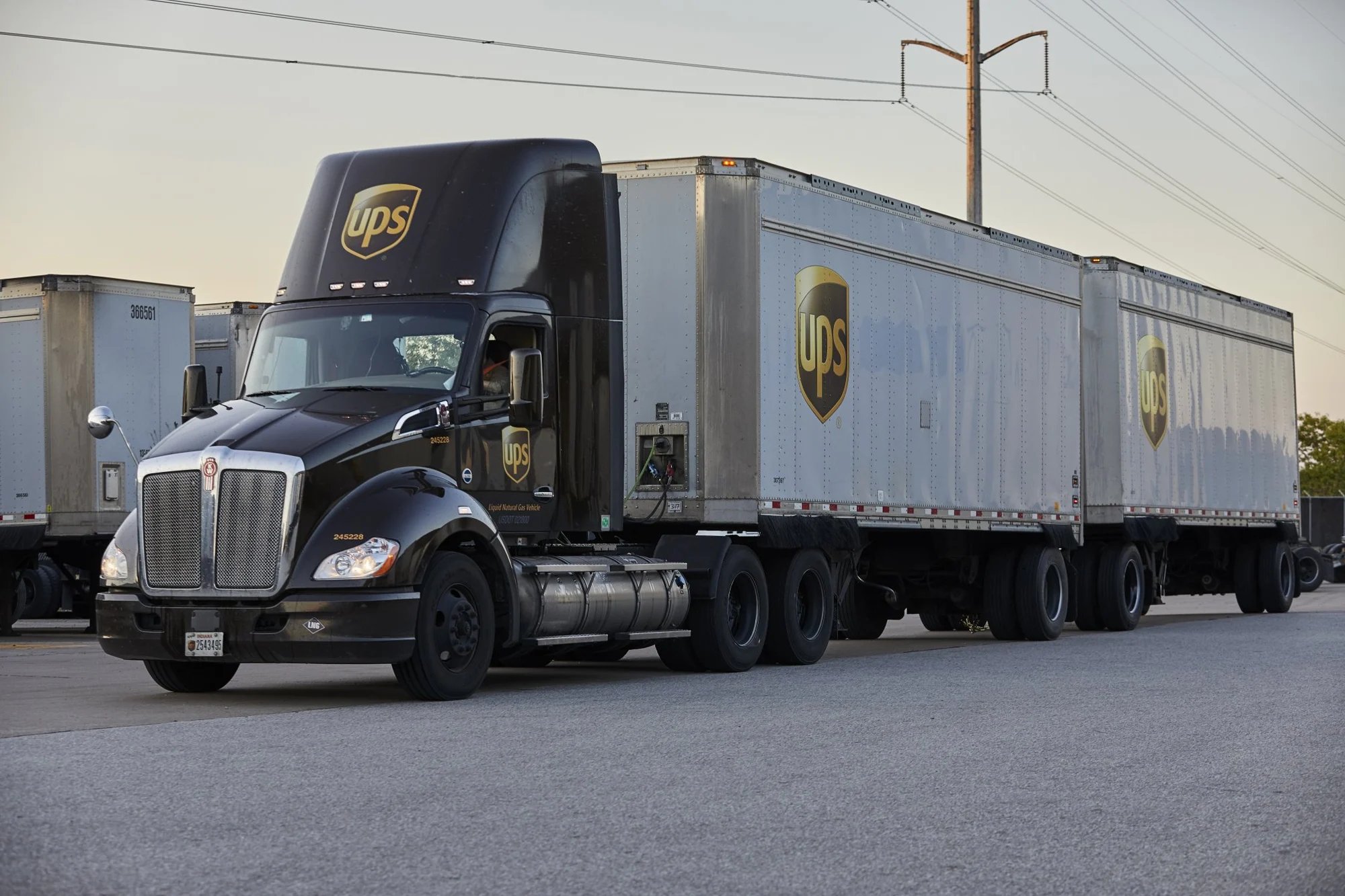In the past month, United Parcel Service (UPS +1.82%) executives have made it clear the company supports the passage of trade agreements currently being discussed between the U.S. and foreign economies.
Speaking at the Rotary Club of Atlanta earlier this week, UPS Chief Operations Officer -- soon to be Chief Executive Officer -- David Abney mentioned the Transatlantic Trade & Partnership, or TTIP, and the Trans-Pacific Partnership, or TPP, as key measures to facilitate international growth for his company and other business, both in the U.S. and abroad.
He echoed statements made during a speech at Delta State University's International Business Symposium in April, where he said: "It's not overstating to say the agreements could be game-changers for international commerce."
The company's Chief Financial Officer, Kurt Kuehn, took more of a hard-line approach to the subject when he spoke with The Street earlier this month: "Barriers to global trade in the form of excessive tariffs and bureaucratic red tape present far too many obstacles and frustrations to exporters and would-be exporters today. It would certainly help not only our company, but the rest of the U.S. economy too, if negotiators would push through the major trade agreements, including the Transatlantic Trade and investment Partnership and the Trans-Pacific Partnership, that are now on the table."
As a shipping multinational, UPS is a clear beneficiary of these agreements, but why have their executives recently become so vocal about the treaties?
Because TTIP and TPP could spell huge growth for UPS.
The impact
TTIP talks are currently between the U.S. and the European Union and aim to minimize the already relatively low trade barriers between America and the 28 EU members. The main objectives are to eliminate tariff and import duties for many industries, increase product regulation compatibility, and lay the groundwork for cooperative standard-setting.
The Center for Economic Policy Research-Europe estimated (opens in PDF) that the agreement would boost U.S. and the collective EU gross domestic product by 0.2%-0.5% annually. The think tank expected the treaty to increase U.S. exports to the EU by 23%-37%, while EU exports to the U.S. would experience a 16%-28% bump. These increases mean more business for the shipping giant.

Source: UPS Media
In 2013, UPS estimated that TTIP's passage could increase the company's shipping volume by 131 million packages over the next decade. Impact analysis is limited without regional data, but based on a daily international volume of 2.5 million packages, TTIP enactment could boost the company's global volume by 1.5% annually.
And the company would be well suited to handle the bump. In March, UPS officially opened its expanded European air facility at Cologne/Bonn Airport in Germany. The two-year, $200 million project added eight sorters to the facility, increasing the capacity of the company's European hub by 70%. The company claims it is the biggest sorting facility on the continent. Construction began well before TTIP discussions formalized in 2013, but more recent actions might indicate UPS is optimistic reduced trade barriers are on the way for a region that is already buoying company returns.
In early June, Kuehn informed a German newspaper that the company intends to invest $1 billion into its European operations over the course of the next three to five years. The company will reveal the larger plan this fall, but the CEO said most of the investment will be sourced to operations in Germany. The company's focus on Europe is not surprising, as its first quarter reports indicated the region experienced 15% growth in export shipments over the same period last year.
Given the recent strength of the European market, TTIP is far from a make-or-break agreement for UPS, but its passage and the resulting increased volume could boost revenue and accelerate the payback period for its European investments.
As for Asia-Pacific trade, TPP would open up markets, and set labor and environmental standards, among others things, between the U.S. and 11 other countries -- most notably Australia, Canada, Japan, and Singapore.
UPS has not invested as heavily in Asian operations recently, though it did commit to spending $180 million to relocate it's intra-Asian hub to Shenzhen in China's Pearl River Delta region in 2008. A year after opening the facility, UPS added direct service from Guam to Shenzhen in 2011.
Based on infrastructure development, the company has not positioned itself to benefit as much from TPP as TTIP. That said, in his testimony (link opens a PDF) before the U.S. House Trade Subcommittee, Amgad Shehata, UPS vice president of International Affairs, estimated that on average, with every new free trade agreement, the company's export volume to involved markets increases over 20% in the first year.
That's a lot of brown boxes.
UPS execs may have started talking more about the agreements now, due to a combination of mounting frustration with political gridlock and a strategic appeal to the public. TTIP has only formally been on the table since early 2013, but TPP has been under discussion for five years. Or, perhaps the company is looking for a volume boost now that its European hub has increased capacity.
Whatever the reason, the agreements carry growth potential for the company and interested investors should continue to monitor their development.






